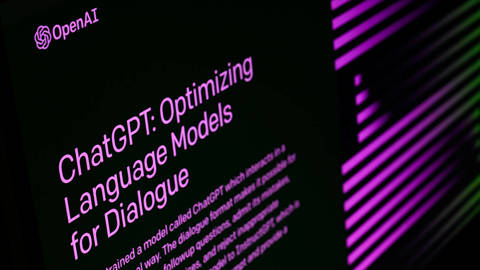Unlike past technological innovations, artificial intelligence is not about humanity’s mastery over nature, but rather about relinquishing control altogether. Whether we realize it or not, the old anthropocentric arrogance that technology enables may soon give way to human irrelevance and meaninglessness.
LJUBLJANA – The Future of Life Institute’s open letter demanding a six-month precautionary pause on artificial-intelligence development has already been signed by thousands of high-profile figures, including Elon Musk. The signatories worry that AI labs are “locked in an out-of-control race” to develop and deploy increasingly powerful systems that no one – including their creators – can understand, predict, or control.
What explains this outburst of panic among a certain cohort of elites? Control and regulation are obviously at the center of the story, but whose? During the proposed half-year pause when humanity can take stock of the risks, who will stand for humanity? Since AI labs in China, India, and Russia will continue their work (perhaps in secret), a global public debate on the issue is inconceivable.
Still, we should consider what is at stake, here. In his 2015 book, Homo Deus, the historian Yuval Harari predicted that the most likely outcome of AI would be a radical division – much stronger than the class divide – within human society. Soon enough, biotechnology and computer algorithms will join their powers in producing “bodies, brains, and minds,” resulting in a widening gap “between those who know how to engineer bodies and brains and those who do not.” In such a world, “those who ride the train of progress will acquire divine abilities of creation and destruction, while those left behind will face extinction.”
To continue reading, register now.
Subscribe now for unlimited access to everything PS has to offer.
Subscribe
As a registered user, you can enjoy more PS content every month – for free.
Register
Already have an account?
Log in











LJUBLJANA – The Future of Life Institute’s open letter demanding a six-month precautionary pause on artificial-intelligence development has already been signed by thousands of high-profile figures, including Elon Musk. The signatories worry that AI labs are “locked in an out-of-control race” to develop and deploy increasingly powerful systems that no one – including their creators – can understand, predict, or control.
What explains this outburst of panic among a certain cohort of elites? Control and regulation are obviously at the center of the story, but whose? During the proposed half-year pause when humanity can take stock of the risks, who will stand for humanity? Since AI labs in China, India, and Russia will continue their work (perhaps in secret), a global public debate on the issue is inconceivable.
Still, we should consider what is at stake, here. In his 2015 book, Homo Deus, the historian Yuval Harari predicted that the most likely outcome of AI would be a radical division – much stronger than the class divide – within human society. Soon enough, biotechnology and computer algorithms will join their powers in producing “bodies, brains, and minds,” resulting in a widening gap “between those who know how to engineer bodies and brains and those who do not.” In such a world, “those who ride the train of progress will acquire divine abilities of creation and destruction, while those left behind will face extinction.”
To continue reading, register now.
Subscribe now for unlimited access to everything PS has to offer.
Subscribe
As a registered user, you can enjoy more PS content every month – for free.
Register
Already have an account? Log in